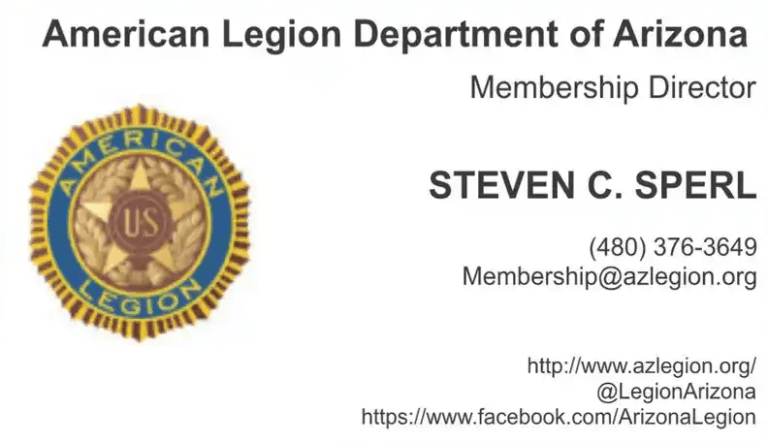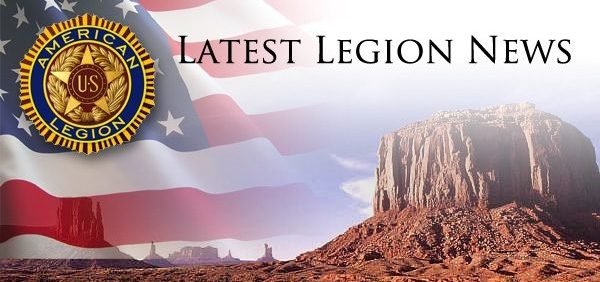An IED explosion cost Army Sgt. Brent Nadjadi, 22, his left leg in Afghanistan in 2010. Leaving the military three years later left the veteran without something else: a sense of belonging.
“When you go back to the civilian sector, nothing’s the same,” Nadjadi says. “It’s hard to relate (there), especially when I was the only amputee in my area in rural New York.”
Nadjadi joined American Legion Post 173 in Bath, N.Y., where he found friends and mentors. “These guys have been through a lot of the same things we’ve been through, and they’re able to speak firsthand to it,” he says. “They took me in.”
Still, he felt incomplete. Before joining the Army, Nadjadi had a strong love for baseball. After his amputation, he longed to get back on the diamond. He made it his goal to “better myself physically and mentally.”
He’s doing that now as part of the Wounded Warrior Amputee Softball Team (WWAST). Based out of northern Virginia, the team is made up of veterans and active-duty military who have lost limbs. They travel the country playing (and usually defeating) able-bodied teams in celebrity, exhibition and competitive softball games.
It’s hard to spot WWAST’s weaknesses. They field the ball with precision, round the bases with speed and can jack the ball out of the park in a matter of seconds. It’s a highly competitive level of softball – and was just what Nadjadi needed.
“It’s great being able to play around like-minded people who look, act (and) feel the same way you do,” he says. “You get that camaraderie stuff with it. You had it in the military, it’s gone, and now it’s back. It’s been an incredible experience.”
While WWAST’s players get a lot out of being part of a team, they also give back. Since 2013, they’ve hosted an annual Kids Camp for children ages 8 to 12 who have amputations or missing limbs. The team covers all the expenses for children and a parent to attend; priority is given to military families.
During this past summer’s camp at George Mason University in Fairfax, Va., children spent a week working softball drills with WWAST players. It culminated with campers splitting into two groups and playing a game in front of family and fans at the GMU softball field.
Children learn physical skills at the camp, but the week offers much more than learning to hit, field and throw. Eleven-year-old Jake, the son of an Army veteran named Christopher, lost his right leg in a car accident a few years ago. He also suffered a depressed skull fracture, and at one point his parents were told Jake would be a vegetable for the rest of his life. He had to relearn everything, Christopher says.
“I’m probably speaking for most parents who have a kid missing an arm or a leg, or both,” he adds. “They lament that there’s nowhere they can go and put their child into another group of kids without their child standing out. And how much their child stands out defines a spectrum, but it’s a spectrum of bad ….
“What this camp offers is a social normal. A lot of the parents I’ve met hail from places where their child is the only one in that community or within a 100-mile radius who has just one hand or just one leg. They come here and it’s a mind-opening experience because they see not just the dynamics of the new social normal … we see young adults who have already walked through the fire that our children are walking through now and are doing it successfully.”
As for Jake, he says he’ll remember the WWAST camp for “a long time,” and that for him the highlights were “meeting all the new kids, with prosthetics … and meeting the new counselors who were wounded warriors who know how much work goes into this thing.”
Thanks to a family connection, the WWAST camp has a strong relationship with The American Legion – specifically, Post 177 in Fairfax, which provides meals, financial contributions and other support. Post 177 conducts the camp’s opening ceremony, while post service officer Brad Watkins arranged for local transportation for this year’s campers. Post 176 in nearby Springfield also provided a meal.
“When the kids come in, they lack self-confidence and lack ability,” Watkins says. “They’ve been made fun of. A lot of times they’ve never associated with anybody else with an amputation. So for them to have this kind of experience, and for these guys to pay that stuff forward, not to mention the patriotism that goes with it – we’re doing the Pledge of Allegiance, we’re tying in The American Legion, the 17th District color guard does flag presentations for the game. All that stuff, it’s what the Legion does. We take care of each other and we pay it forward.”
The team’s family connection to the Legion is coach Dennis “Bucky” Weaver, who has headed WWAST since 2014. A member of Post 177’s Sons of The American Legion squadron – and son of a World War II veteran and 50-year member of the post – he applauds the Legion’s support of the team at the camp and on the road.
“The American Legion’s support over the past six years has been incredible, especially here at 177,” Weaver says. “Every time we’ve come in the area, they’ve opened this place up and fed us and taken care of us. And we when travel, the same thing. All the posts around the country, we’ll stop in for dinner. The Legion Riders, the Auxiliary, the Sons – everybody has been so supportive of us. I can’t thank them enough.”
He adds, “The Legion was such a big part of my life growing up. I played baseball here for Post 177. It’s amazing how they’ve opened up to me. Every time I come back they want to know how the team’s doing.”
Weaver originally planned on being with the team for a year, but that changed when he spent time with the players. “I realized their hunger to get back into playing sports … (it) really appealed to me. I looked at myself and said, ‘You need to help these guys.’ So I stuck with it.
“When we first started, a lot of these guys had issues. They had PTSD. (They had a) distrust in their prosthetics. A lot of these guys, when we first started, were just out of Walter Reed … I see a change in them mentally and physically. I think a lot of it has to do with camaraderie. Getting back with more people who are soldiers. I think that’s something they really missed when they left the military.”
Nadjadi has found those relationships with WWAST, as has Frank Wasson, a member of Post 136 in Salem, Ore., and Army veteran who lost his left leg in a rocket-propelled grenade attack in Afghanistan in 2010. He enjoys seeing campers grow in their confidence and skill during their week with the team.
“You’ll have kids missing legs and they’ll come in pants,” Wasson says. “The (missing) arm kids will be in long shirts. Slowly, through the practices and the days, they’ll start shedding down to tank tops (and) T-shirts. You start seeing these small groups form. They actually start having friends themselves. And what’s funny is you see the parents forming small groups and transferring information among themselves.”
One parent at this year’s camp was Eric Thomas, an Air Force veteran and commander at Post 360 on the campus of Indiana University Purdue University-Indianapolis. His son, Sam, was born without fingers on his right hand and has attended multiple camps for children with similar challenges. WWAST makes a deep impression on its participants.
“You can’t really put into words what they take away from that,” Thomas says. “As a veteran – not being injured but having friends who have been –
I know what that’s like, at least from a little bit of a distance. Exposing these kids to these great patriots – you can’t put into words.
“We went to D.C. and were walking along the Vietnam memorial, and there were veterans walking in the opposite direction (with) Vietnam Veteran hats on. And (Sam) is stopping and offering a hand to them and saying, ‘Thank you.’ It was very emotional to see him volunteering it like that. Other kids were doing the same thing. This kind of camp, with these people as mentors, helps bring that patriotism and understanding about the cost of freedom. I think that’s great, too.”
The Legion’s support for the WWAST camp means a great deal to Thomas. “As a Legionnaire, it makes me really proud to be involved with an organization that is so giving and so welcoming … to know that no matter where we’re at, there’s always good fellowship to be had, and open arms and friendliness.”
For Post 177 Commander Jeff White, the Legion’s relationship with WWAST is a natural fit. “It just resonated,” he says. “The (team), that’s kind of what we’re about: trying to do things for veterans and support them any way we can.”
That support matters to Nadjadi, both as a player and a Legionnaire. “We tour the country and get to stop at all these Legion posts, and it just amazes me how people come together and really put on a great time, a good atmosphere,” he says. “It’s really awesome to be a part of (the Legion).”
Steve B. Brooks is social media manager for The American Legion.
Source: Legion News




